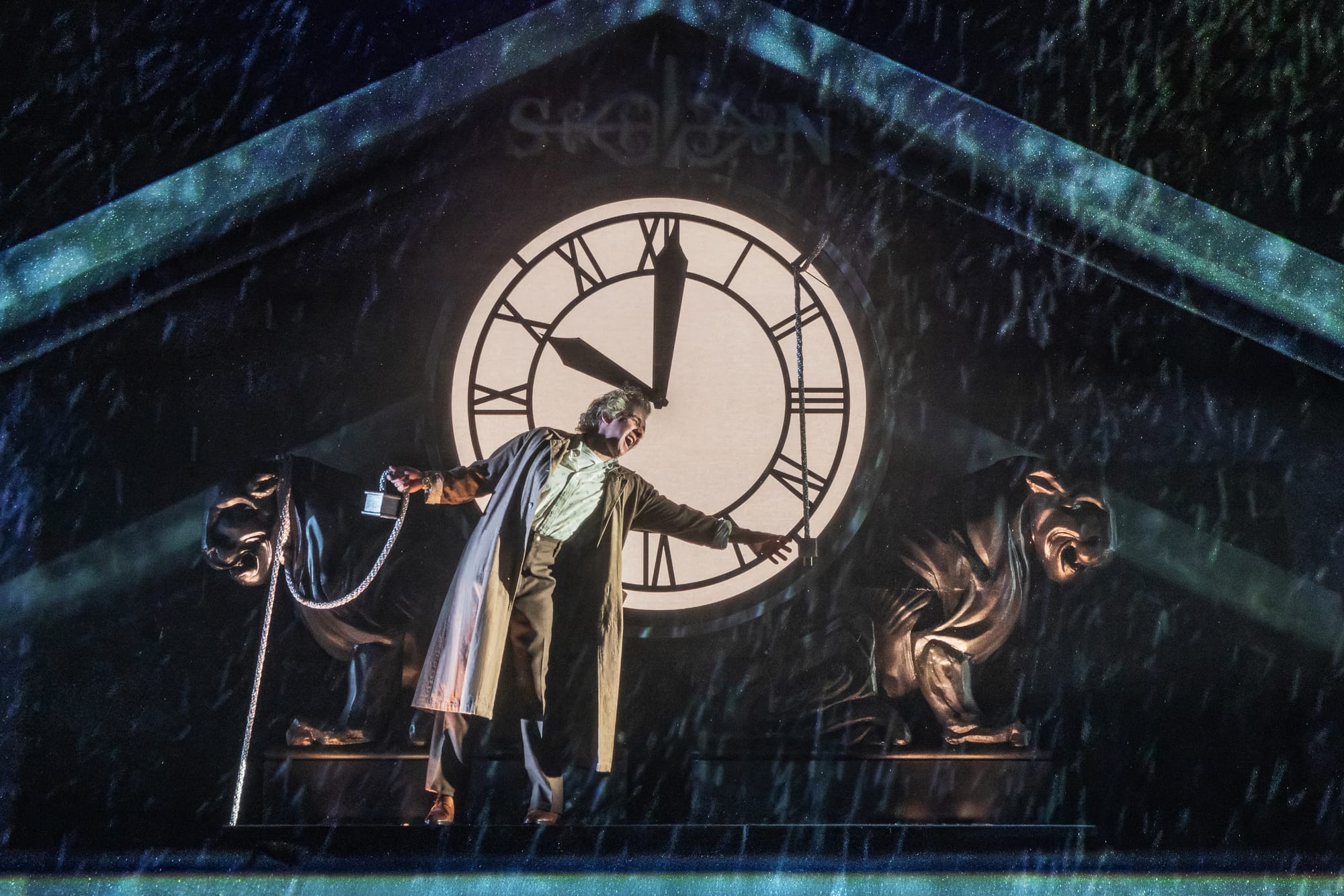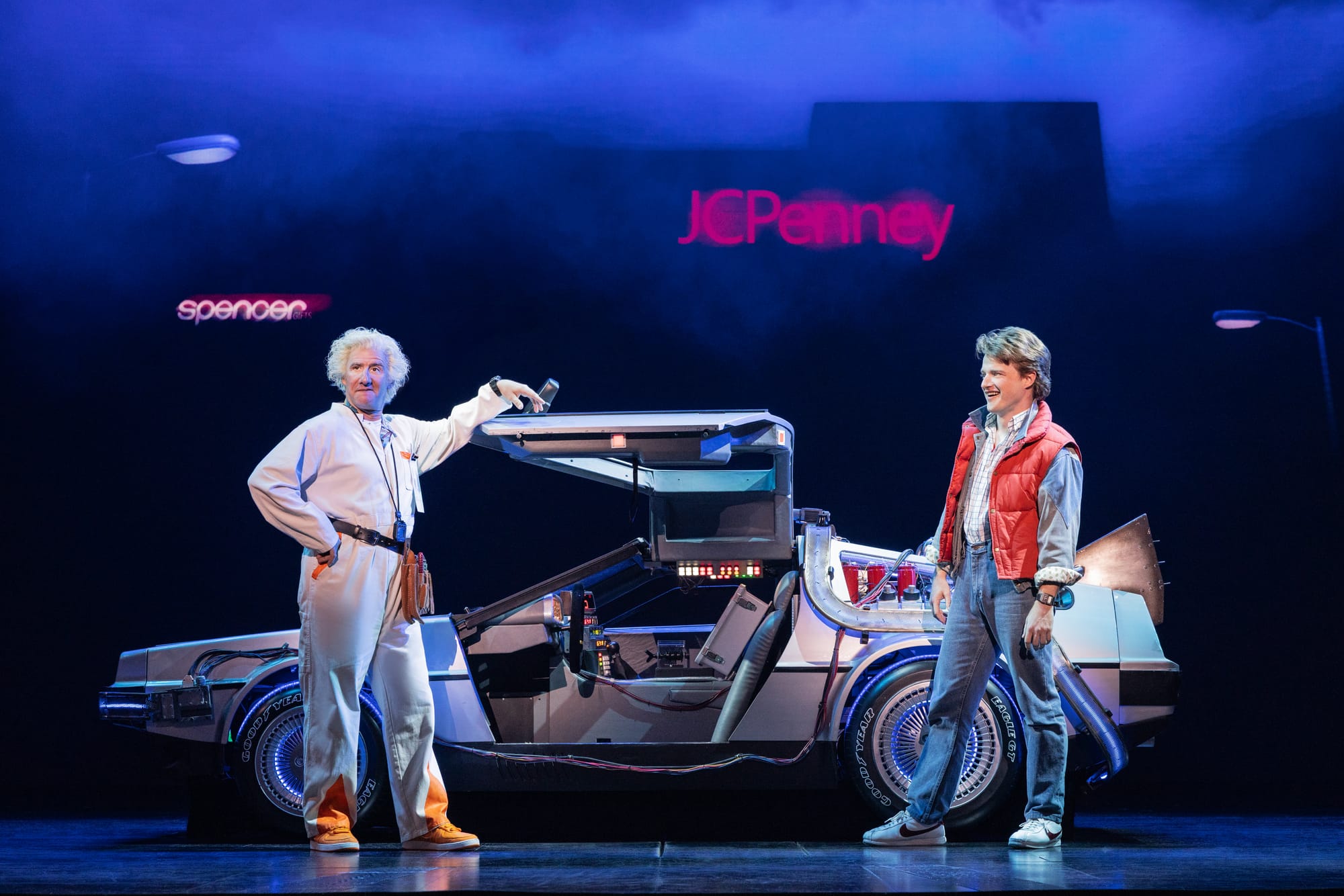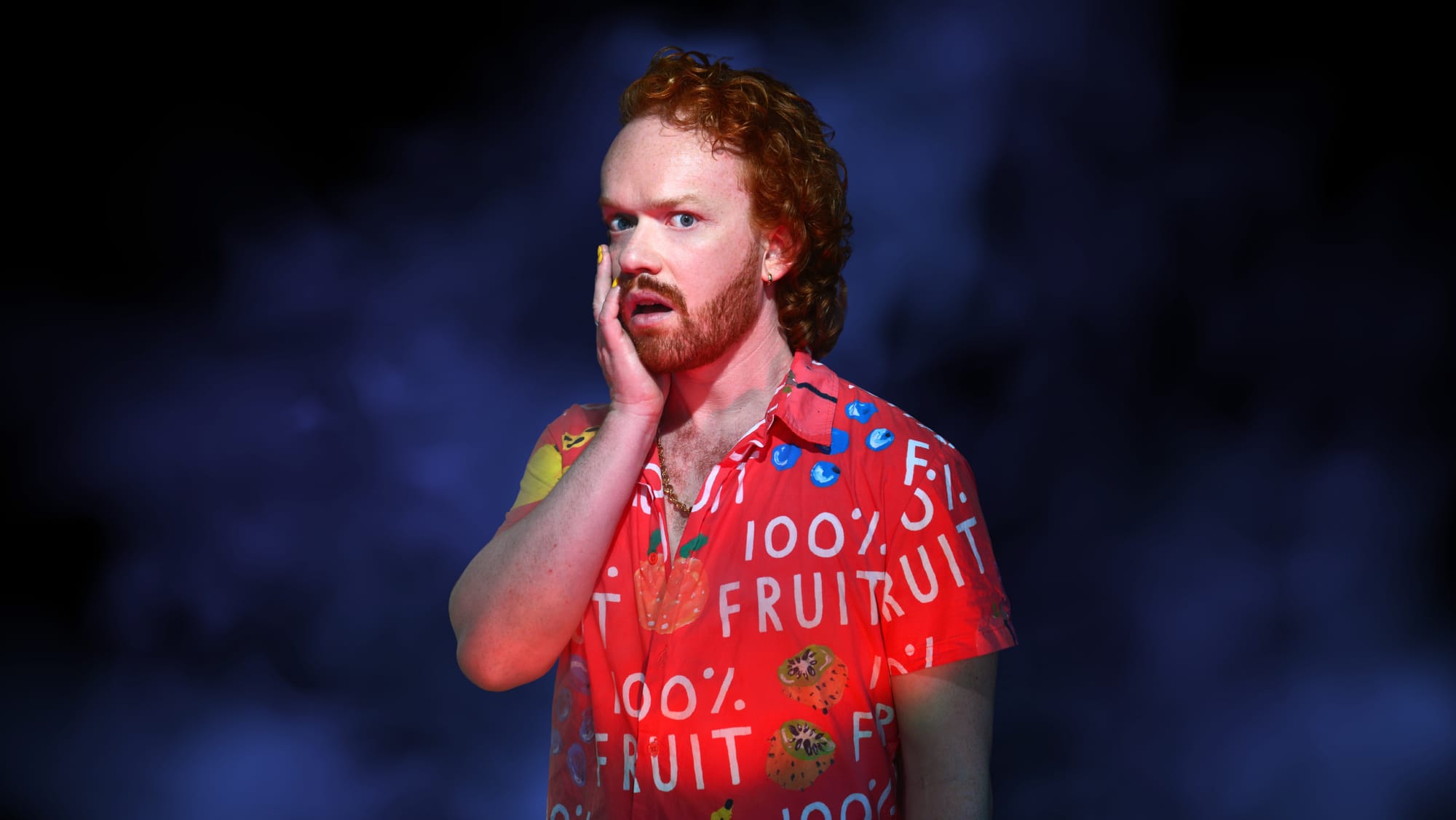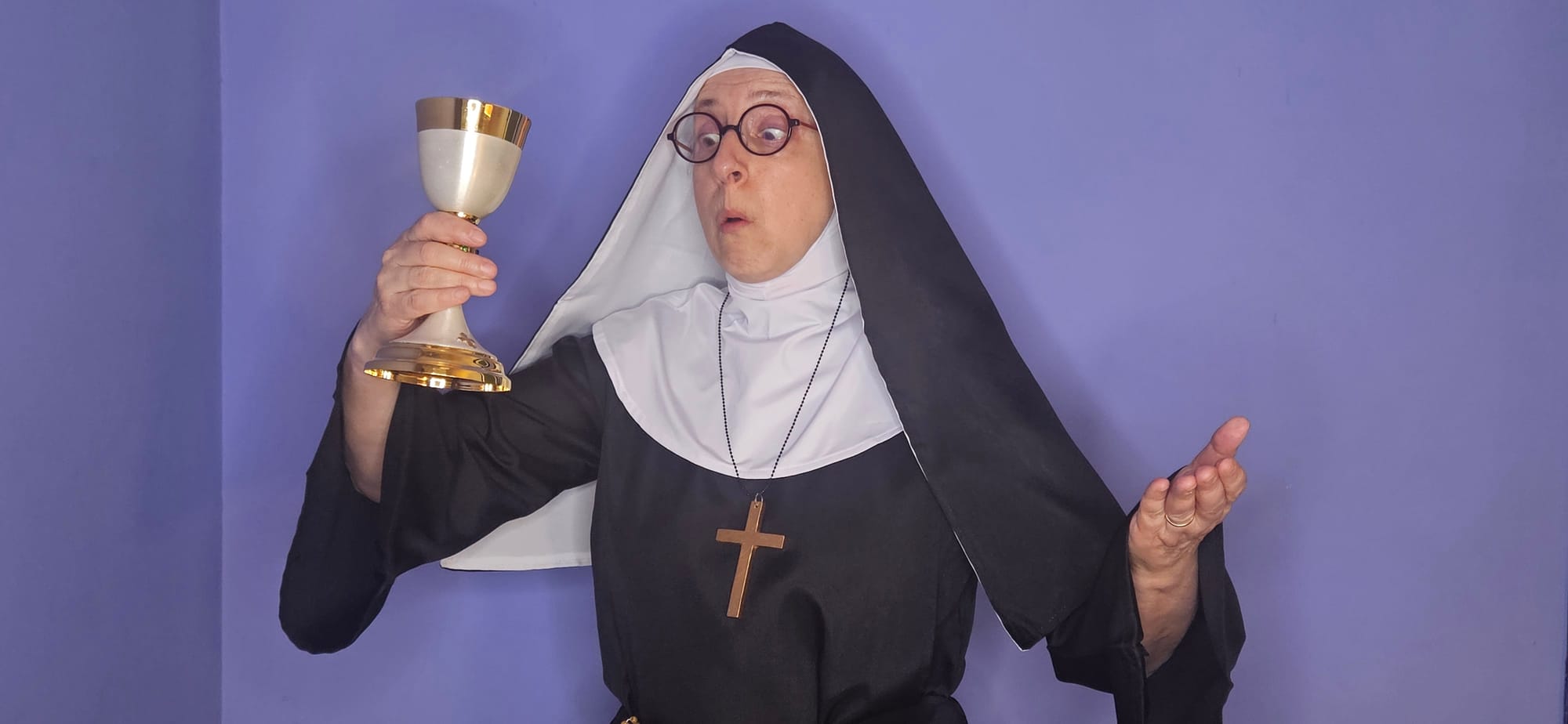Joseph Ziegler, plus heading Back to the Future and visiting the Hamilton Fringe
I remember the gifted actor and director, and review a disappointing movie-to-stage musical as well as three shows at the Hamilton Fringe Festival

The great actor and director Joseph Ziegler passed away on Monday. It’s been heartening to read the many testimonials and reminiscences by people who had worked with him throughout his decades-long career.
I never interviewed or even formally met Ziegler. But somehow it wasn’t surprising to learn that as a director he was calm and kind, someone who encouraged a spirit of curiosity in the rehearsal room. That came through in his onstage work as well.
From the perspective of an audience member, he always emanated goodness and likeability, decency. He often felt like the conscience of a play. He was beautifully cast in later Stratford productions of The Diary of Anne Frank (as Otto Frank) and To Kill a Mockingbird (as Judge Taylor). Both good, decent men.
With a handful actors, I can immediately hear the pitch and timbre of their voice in my mind — it’s an essential part of what they bring to the stage. I can vividly recall Ziegler’s resonant voice — mellifluous but never smug, unless it was called for by a character.
Even in his later roles — Willy Loman (opposite his wife, Nancy Palk), for instance, or Ebenezer Scrooge, or Henry VIII, or James Tyrone (again, opposite Palk) — Ziegler had that unique ability to suggest the younger man inside, the one who was still open and optimistic, before he had made mistakes, compromised and shut down parts of himself. That inner tension is the stuff of drama, and Ziegler could communicate that in spades.
I’m too young to have seen his earlier work at the Stratford or the Shaw festivals, but I vividly recall his many shows at Soulpepper, where he was a founding member, including the aforementioned Death of a Salesman, A Christmas Carol, The Last Wife and Long Day’s Journey into Night.
I also remember his chilling portrayal of the drunken, broken patriarch of a brood of violent Irish sons in Whistle in the Dark, the debut production by the Company Theatre that made many critics’ year-end lists of favourite shows.
As a director, he helmed many fine shows, including the marvellous production of Our Town that helped inaugurate Soulpepper’s space in the Distillery District.
“Do any human beings ever realize life while they live it — every, every minute?” asks Emily famously at the end of that play. To which the Stage Manager replies: “No. Saints and poets, maybe... they do some.”
Joseph Ziegler did. And through his art he made us realize it, too.

Back to the Future: The Musical sputters
For every musical that’s been successfully adapted from a popular film — Hairspray and Waitress, say, or the recent Beetlejuice — there are quite a few that feel lost in translation. I’m thinking of something like Dirty Dancing here. And now: Back to the Future: The Musical (Rating: ✭✭).
Nostalgia and familiarity with Robert Zemeckis’ 1985 adventure comedy only go so far. The songs must work on their own, and the score and book must help tie everything together in a way that makes the show feel like it belongs onstage.
You seldom feel that with Back to the Future, which follows most of the plot points from the film — with a couple of notable, understandable changes (buh-bye, offensive gun-toting Libyan terrorists).
High-schooler and aspiring rocker Marty McFly (Lucas Hallauer, looking/sounding a lot like the film’s Michael J. Fox) travels from 1985 to 1955 via a DeLorean car that is actually a time-machine, created by his mentor, the eccentric Doc Brown (David Josefsberg).
Once there, he meets up with the younger Doc and convinces him his time-travelling experiment really worked out. But for obvious reasons, he wants to return to the present. Only problem? They lack the energy source, which can be solved by harnessing the energy from a huge bolt of lightning that famously hits the town square tower at a certain known date and time.
Marty must also ensure that his parents meet each other and fall in love, something he’s already upset by interrupting his dad, George (Mike Bindeman), in a diner. And that’s where the big comedy comes from — in the film, anyway.

In the musical, the plot keeps getting stalled by Alan Silvestri and Glen Ballard’s new musical numbers, none of which is memorable and only a couple of which take advantage of the era or a particulate style of music — for instance, Marty’s mom Lorraine (Zan Berube) gets a couple of doo-woppy 50s numbers.
Too many of the ho-hum songs attempt to tie into the show’s theme of time — the opening numbers, for instance, are titled “It’s Only a Matter of Time” and “Got No Future.” Get it? And Doc is given a maudlin song called “For the Dreamers” about underappreciated geniuses — perhaps like Einstein and Franklin, pictures of which line the wall in his workshop, designed by Tim Hatley in a set that often seems cheap because of the wobbly, wrinkled nature of its materials.
Thankfully, the creative team has put their money where it matters the most: into the design and effects of the time-travelling DeLorean. Hatley, along with lighting designers Tim Lutkin and Hugh Vanstone, video designer Finn Ross, illusion designer Chris Fisher and sound designer Gareth Owen have created a car that really does look like it’s travelling at 88 mph and even — in one of the final moments — lifting off the ground and flying. (Here is my fascinating interview with Hatley.)
The final 10 or 15 minutes, up to and including when Doc is on the clock tower (another astounding effect) is thrilling.
The performances are fine. I particularly liked Bindeman’s physical contortions as Marty’s awkward, geeky father. But you know something’s amiss when a show’s effects are what you’re talking about as you leave the theatre.
Back to the Future: The Musical continues at the CAA Ed Mirvish Theatre (244 Victoria) until August 31. See info here.
Hamilton Fringe Festival reviews
Just over a week ago, I realized that I could fit in a couple of shows on the closing weekend of the Hamilton Fringe Festival, which ran from July 16 to 27. I’m glad I went, especially since many shows featured artists familiar to Toronto audiences but that weren’t part of the just-finished Toronto Fringe. (Next year, I’m going to try to see more shows on the festival’s opening weekend.)
Steven Elliott Jackson’s A Question of Character (Rating: ✭✭✭✭) has a terrific premise. Nearing 80 years old, the controversial film director Leni Riefenstahl (Paula Wing) sits for an interview with a film journalist named Paulina Mitchell (Tanisha Taitt).
Riefenstahl has agreed to the talk on the understanding that they only discuss her films. Mitchell, well-schooled in the filmmaker’s work, has another agenda.
What’s great about Jackson’s script is that while it informs us about the background and oeuvre of the Triumph of the Will director, recognized today as being a Nazi propagandist, it also draws on the thriller genre — and most importantly, it lets us contemplate issues of ethics and moral responsibility in creating art.
Director Alice Fox Lundy, who did such a fine job helming The Adding Machine at the Toronto Fringe, is working on a slightly smaller scale here, but nicely brings out the shifting power dynamics between the two women. She also designed the set, and the way she choreographs the women’s confrontations, where they often use chairs to give some distance between themselves, is extremely effective.
Taitt, a teacher and the artistic director of Cahoots, is better known as a director — she directed two of Jackson’s earlier plays, The Seat Next to the King and Three Ordinary Men; and I know Wing as a dramaturg and the frequent writer of those well-written notes in Soulpepper programs.
They’re beautifully matched here in a play that feels at times like a battle of wills — and philosophies. Wing, complete with convincing German accent, is alternatively proud, watchful, condescending and low-key offensive about Mitchell’s race, convinced she never knew what was going on under her nose. Taitt, meanwhile, has the bigger challenge of playing a woman who starts out obsequious but wants to get to the difficult, problematic truth of a horrible situation, all while having a personal stake in the outcome.
Plays exist in the present, and the themes arise in A Question of Character feel urgent and relevant today. Can we separate the art from the artist? Is art ever objective? Do artists have a moral or ethical responsibility about how they make their art?
There are no answers, but repeat viewings — perhaps this will be remounted in Toronto — will raise other questions, and discussions.

Johnnie McNamara Walker’s savagely funny and insightful solo show The Heterosexuals (Rating: ✭✭✭✭) has had runs all over the world, and it’s set to travel to another half dozen places soon. But it’s only had a couple of one-night showings in Toronto. It deserves at least one regular run here.
The concept is brilliantly satirical. Walker, assuming that the entire audience is queer, asks what we do about (whispering here) “the heterosexuals.” His point is that queer culture has been appropriated, from bachelorette parties taking over bars to straights saying “Yas Kween!” and quoting Queer Eye co-hosts.
The satire gets more emotionally engaging once he revisits his onstage persona’s childhood, which is largely spent trying to fit in, studying the straights around him like Dian Fossey in Gorillas in the Mist. His role models include J.K. Rowling, Joss Whedon and Bryan Singer, who all seem to write material about the underdog but who all end up becoming problematic. In theatre school, he’s criticized for the way he walks and talks. He even dons a plaid jacket to represent his straight doppleganger: the other Johnnie.
Underlying it all is a simple plea: “Stop murdering us,” a request that lands with brute force and relevance today.
At times Walker’s clever text is too dense and difficult to take in at once; an outsider director could help him adjust the pacing (I remember his earlier show, Redheaded Stepchild, being more clearly presented.)
But Walker is a warm, likeable and engaging performer, and this play — as funny and moving as it is biting — deserves its international success.

After a beloved fellow nun passes away, Sister Sophia (playwright Lisa Randall) begins questioning her faith. As she puts it, she’s been “holy ghosted.” She then looks back at her entire life, wondering whether she’s missed out on life to pursue her calling.
That’s the premise, I think, of Sister Sophia Kicks the Habit (Rating: ✭✭✭). I say I think because it’s initially hard to get one’s bearings with the show. Is it a comedy (the promotional photos and title suggest this), or a drama? And what to do about the songs sprinkled throughout the show, which seem earnest at times but also humourous (nice to hear Tom Lehrer’s “Vatican Rag” this week).
Under director Kate Johnston, the tone wavers, and the play suffers from a lack of momentum. But as she demonstrated in her 2022 Toronto Fringe play The Sorauren Book Club, Randall is a talented, observant writer. She’s also a focused and warm actor, and talented singer (she’s got some terrific low notes).
I look forward to seeing more of Sister Sophia, especially once she figures out who she is, and exactly what she wants to tell us.
Updated theatre listings
I’ve recently overhauled the So Sumi theatre listings, which you can find here and at the top of the home page. I’ll be updating them regularly and will include info on what shows are opening on any given week (Monday-Sunday). I’ll also link to reviews and feature articles, if available.
For members and non-members, I’ll be including a couple of weeks’ worth of listings. For paid-tier members, though, I’m including several months of information so you can plan ahead. Right now, I’ve listed shows that open up until the end of December. I hope you find them helpful; I certainly do, especially as I plan and prioritize what to see this fall.
